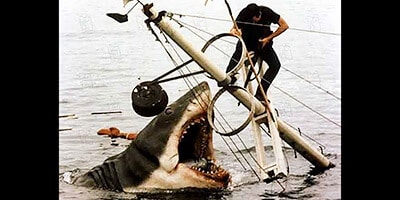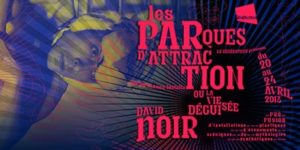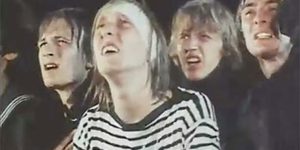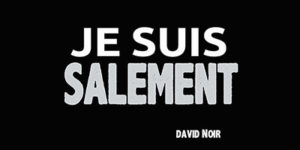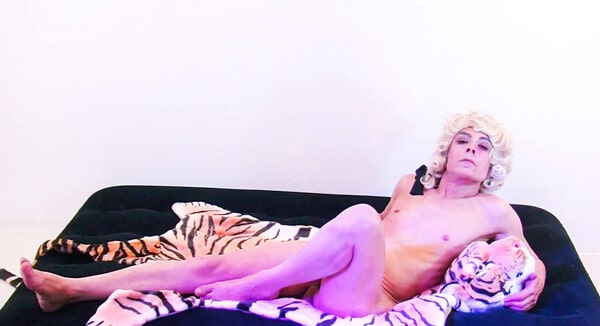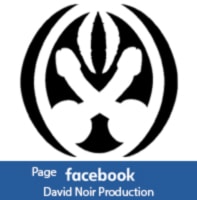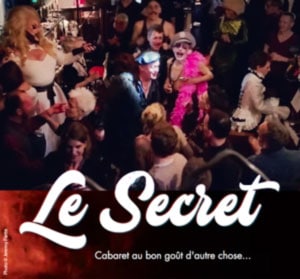Emerging victorious from the final battle
Extracted from the animal night, our worst nightmare is to become prey again
I remember Jaws
The title alone, which I didn't understand, but whose calligraphy I saw in the magazines, in small print below the rather loose French translation, "Les dents de la mer", spoke volumes while being so short.
This enigmatic word was one of those strange and disturbing details that I would pick up during my explorations on the surface of the poster reproduction I had. Where we used five words, English was terribly efficient with one. Pronouncing it from the consonance dj of the "J", gave me the impression of simulating the opening of a shark's gaping maw and at the same time, by its brevity and its sharp "S" ending, made me hear it like a ZThe "W", a literal symbol, if it needs to be said, of razor teeth alone. There was still the "A", the only vowel, the muffled fake of the inner mucous membrane of the wide-open mouth, which gave fullness and prolonged the sound.
4 letters for 38 years of anguish. Thus the particles of meaning are irremediably tied to the imaginary in formation. A dreadful observation of a macule that no solvent of memory could ever dissolve. The only solution is to wash away these diseased stains until they pass from the surface to the back of the carpet. It might as well be said that at the 'advanced' age I was at the time, repression, a poor plaster of appearances, a stopgap measure for healing, would no longer be possible. The blood-coloured title almost made the terrifying image on the poster superfluous. Scanning the glossy vignette with disgust and fascination, I lost myself in its details, having been prepared and drawn in even earlier by the French title, the first time I heard about it at school. Like an evil relic, the miniature poster reproduced in the magazine was directed at me and I couldn't help myself.
What were those teeth drawn like daggers that had been quickly cut out of the metal? How many metres long could the body of this monster be, emerging like the vertical foot of a T, at right angles to that of its victim who was swimming without suspecting the awful fate that awaited him? Impossible to say. Dozens, it seemed. The graphic designer and director had done a good job. The suspended time and the event that was to come were both captured in the image. Looking at it again and again kept associating in my unconscious, that of a real animal - which, as dangerous as it was, remained for me until then, a predator in the same way as a lion or an alligator - and the figure of a terrorising chimera, just far enough away from reality, that its deformation aroused fear at the mere sight of its portrait on a poster. That was the end of my sleep for the next few months, of my happy summers at sea and of my childish zoology-loving view of sea creatures.
The impact was multiplied tenfold when, during the week before its release, a good-sized original copy, plastered on a board supported by a trestle stand in front of the cinema to announce the forthcoming arrival of the film, did not cease to catch our eyes and haunt our thoughts. I and several other boys and girls between the ages of 12 and 13 would stop there every time we came back from school. After a lot of word of mouth that must have arisen long before, in the field of our budding cinephilia, the addiction was total for all of us from the first day we saw the full size image. Everything about this illustration made it iconic. We could have thought it was holy for it to fascinate us so much; everything about it was diabolical and chained us more surely than any promise of heaven.
The prescience of a terror had captivated us in advance; in a few days, the phantasmatic fear of a foretold reality turned us into zombies. Having become monsters in our turn, we had only one thing to look forward to, that the reels were finally projected in the cinema and unrolled for us the slow agony of our carelessness. The week passed like a fraction of a second as well as an eternity. We couldn't wait any longer. We couldn't stand the fear of what was still not there. The great day of the satanic baptism arrived. At 2 p.m. sharp, we were in possession of our entrance tickets. A few minutes later, we occupied a whole row in a room full of young people our age or just a little older. An uninformed spectator might have thought he had gone to the wrong room and left, thinking that a Disney movie was being shown there. He wouldn't have been so far off the mark; in terms of animation, we were about to be confronted with something never seen before. Life-size fakery, a demon that lived up to our expectations, horror as we would never have imagined it.
The worst thing, of course, was that we knew all this in advance. We were there to check our intuition. We were not going to be disappointed.
"What was I going to do in this mess? I didn't know Moliere yet, but a line along the same lines crossed my mind once I found myself sandwiched between my two favourite girlfriends at the time. They sat on either side of me as a small, slender guy, no doubt intending to hold on to me when the scenes became too unbearable, and already, as the credits rolled on the inconsistent lightness of the commercials, their fingernails were tearing at the flesh of my forearms.
It was June 1975. The heat was already strong in the Var and the cinema had no air conditioning. Even before the show started, I was already in water, my arms bare and reddened by the girls' grip, yet holding back their incipient hysteria as much as they could.
I knew then that I had just embarked on a journey that was going to be very difficult.
I will not, of course, describe the film, whose dazzling success devoured an entire generation of brand new viewers. Nothing belied my easily premonitory feeling. From beginning to end, from the first attack, which did not relieve the tension, on the contrary, to the last note of music, the session was atrocious. I staggered out of the theatre with my fellow human beings, after two hours of torture worthy of that inflicted by the Ludovico treatment on Alex in "Clockwork Orange", which had been shown three years earlier in the same theatre, but which, being too young, I had of course not yet discovered.
We said little or nothing on the way home. Some of us, moderately boastful, punctuated the silence with a few morbid jokes. It was not enough to make our little group laugh in shock. We left each other with awkward smiles, each of us going home, each with a lump in his or her stomach, like me, I suppose, which turned into a shameful secret when we had to say two words about the film to our respective parents, who were happy to accept it. Sitting on my bed, alone in my room, I could finally breathe. Use "relax" here would be truly abusive.
I was not athletic and had no physical diversion by which exhaustion could have washed away some of the imprint of the infernal shark's bite. A less healthy fatigue assailed me. I thus remained in a slight catalepsy from the end of the afternoon until dinner time when, fortunately, the subject did not resurface. But it was still there, like an active and slow poison, going round and round in my body and mind. I soon went to bed. The night was not restless. My body, which seemed to weigh a ton, sank into the thickness of the mattress and sleep took hold of me all at once. I got up early to go back to school and my first instinct was to glance at my magazine to give myself a dose of those terrible images, including two or three stills from the film. As the magazine in question is a popular science magazine that is at one with current events, the rest of the photos were of real sharks, including, of course, the famous great white, the hero in spite of himself, who displayed his very special and spectacular teeth on several photos. Inevitably, an impressive full-page spread featured the result of a famous attack, showing a man with an unbelievably clean, gaping, knife-like wound in his side. The rest of the torso, the shoulder and one of his arms, were also widely perforated at regular intervals, in a monstrous dotted pattern of conical pits opening onto the bloody flesh, as if a knacker had scrupulously followed the outline of a previous dotted drawing. The fact that I had seen the fiction a short time before doubled the already vivid impact of this image, a capture of reality, by giving it an additional supernatural force. The film beast did exist in real life.
The man who was horribly injured was called Rodney Fox. The attack of which he was the finally "lucky" victim, occurred in 1963, the year of my birth. This coincidence struck me as I wondered, through my romantic mind which is prone to inflicting itself with intractable tragic questions, whether I should pray to fate to roll back twelve years so that it would not happen and I could exchange my coming into the world for the erasure of this man's traumatic accident. The identification, a product of Hollywood cinema, worked wonders, instilling in me such ideas that I wished I had never been born so that such a horror would never happen to me. Rodney Fox was incredibly cold-blooded and, after a fierce tussle with an animal probably three times his size, had managed to escape the jaws that were ready to tear him apart. A news report made me discover him more deeply years later, showing a man entirely devoted to the cause of saving sharks and in particular, the species that had almost devoured him. An extraordinary redemption of his former life as an underwater hunter; if there was a miracle, beyond the outcome of his unique adventure, it was in this total turnaround, in this unforeseeable realisation that he had to stop being a killer and join the orders under the banner of protecting these majestic marine predators. In spite of this and the intellectual understanding that I can have, something in me that is probably too weak or unfulfilled continues to leave me speechless before the spectacle of such an evolution in the course of a lifetime. No doubt this is due to the weakness of my faith, which cannot attach itself to any object of belief except the certainty of death.
It was not so easy, coming from there and struck by amazement at the inescapable since my earliest years, to convert to religions marked by more hope. I don't really blame the fundamentalists, whose impasse I perceive as much as it inspires me to reject. There are indeed few paths left, apart from a hopeless atheism. The pantheism that could have attracted me has, by its extremity, made the life of a Christopher McCandless On the other hand, monotheistic religions seem to me to be selling God in kit form, passing the pill like a marvellous ecstasy, by selling a hypothetical Beyond. Alas, I am not a client of political doctrines, even if they are clothed in the veil of religious fervour. Otherwise more fanciful, the ancient polytheisms - it must be said that I know nothing about current or ancient Hinduism - offer a little more flexibility. Even so, I can't see myself making offerings to Zeus. The family as a temple, even a secular one, has never been a truly tempting horizon in my eyes, and libertarianism, an old version of materialistic consumerism, even if I defend its values of freedom, is not my daily adventure. As for art, it impresses me only on rare occasions.
Finally, without this really being a belief, it is only the mystical nature of the hero, of which I have no attributes, that fascinates me. He is the only tangible being, who in some rare cases, in a way, gives death a good thrashing in its untimely and overly hasty manifestations. From this point of view, as much as Spielberg's feature film, which I don't thank, indulged in horrific fantasies, Rodney Fox's story - even though I think very few of us would show such combativeness in an identical situation - transports us to the high spheres of symbolic combat.
All is not lost in advance in the face of powers whose deployment is infinitely beyond us. Saint George, although he did not exist, joins the very real struggles of those who overcame the ordeal of confronting evil. I doubt that, like the courageous diver, they would have felt compassion for their tormentors once they emerged from hell. But this is where, fortunately, a saving restraint is possible to oppose the delirium of phantasmatic fear, they surely found enough strength in themselves to bring back the image of the torturer, staged to arouse horror and loss of control, to the more realistic one of a human beast with its limits as much as the powerful shark can have.
The strength therefore lies, as we can imagine, in ourselves, and courage is the operation that consists in bringing it out despite the terror that, once we are put back in the position of prey, stands there in front of us, always ready to strike us down.
It was two years after the release of "Jaws" that a new genre, coming from the playful world of models and no longer from the life-size creatures inherited from King Kong, appeared to come, through a pioneering episode, to remind us of this magic formula. This dashing and adolescent perspective arrived to offer us some tools to make Jaws. With a lot of effort and a few laser sword fights, the force would be with us. It was no longer a question of surviving, but, defying the dark side, of tilting to the side of 'good', where, if you didn't win every time, dying free of fear was no longer a utopia. We would soon be joyfully entering the 1980s, a toy-like parenthesis before the international conflicts of the end of the century, where, incredibly, George Lucas' visions would prove to be particularly representative.
A world separated into good and bad guys, green lights streaking the sky of battle, "Star Wars" seemed to inspire the Gulf War in the aesthetics of its images. The general public was not yet aware of the virtual and computer-generated images; for the time being, it was savouring the new-generation SF and its droid humour. Already far behind, stranded on the sandbank of the 1970s, the cardboard monsters had finished their career. Jaws had barely escaped with his life.
Bizarrely dispatched from the script in the form of a gigantic plate of sashimi scattered over hundreds of metres, the big mouth and its hundreds of teeth arranged in order of battle, had disintegrated under the deflagration of the explosion, doubtfully improbable, of a bottle of oxygen thrown by a Roy Scheider in great shape, although on the verge of sinking. The implausibility of this fishtail ending (I dare say in the water), left even Peter Benchley, the author of the book, hungry. A certain moral wanted to be saved so as not to leave the audience of great shows trailing in the wake of the two survivors - one of the heroes having come to the surface after having managed to take shelter behind a rock on the sea floor.
But the happy ending of the story had trouble with the most psychologically fragile and for me, I was left with a litany of carnage in front of which the miraculous denouement had little weight to save me from the persistent anguish.
These are the risks, sometimes misjudged, of life as a spectator. Years later, I discovered video games and whatever one might have said about the recurrent and certain violence of fighting games and other beat them allThe latitude offered by the videogame medium through its multiple genres brought me and continues to bring me immense pleasures as well as discoveries. I don't deny the masterpieces of my personal pantheon which enchanted me in the cinema and among which are many horror films, but I owe to the movements of the joystick - as the literal translation of its suggestive name indicates - the invigorating discovery of being able to sometimes, Depending on the title, I can escape completely from the imposed story for a while, as is the case in certain RPGs (Role Playing Games), and wander around to my heart's content, discovering little games in the heart of the game itself, as well as other side quests. This unique possibility in a fiction, outside of one's own reverie, immediately appealed to me when I gradually and late in life had the opportunity to discover these universes. I found there the familiarity of what the scene allows or the opportunity to wander given by the umpteenth viewing of a film that one cherishes and for which it is no longer necessary to follow the story step by step. These side trips, decried in productions with "no mastery" of the script, have been for me the charm of many viewings of films that have been declared failures and unattractive.
The art of the screenplay is an ambiguous discipline whose teaching already made me very nervous at film university, when the majority of students found the keys to narrative talent in it, while I was annoyed at the clichés and tricks of the genre. For a few Hitchcocks, computer scientists of meaning, how many makers with supermarket ambitions? I still see today, in my resistance to stories, even if they have the momentary impact of a film, similarities with a disgust for subjective education raised to the level of dogma. A distrust of tales that make you wake up at night or not sleep at all, because as for me, in the case of JawsIn fact, it is not the first night after the impact that is the most important, but the decades that followed. A great exception is myths which, unlike cults, have proven their benefit beyond the shock of surprise, to prove to be more frequently protective than harmful companions on the road, by the objective globality that allows free interpretation to be. There is a notable difference between the totalitarianism of points of view aligned on an axis and peripheral latitudes around a phenomenon. The two forms of transmission intersect, both in the education of the masses and in culture of the same order. Is the hero we harbour able to break free from the carnivorous grip of populist pressures? The still fresh bloody traces of recent history do not really give any proof of this. Perhaps a turn, from time to time, to the side of deep mythologies and playful fantasies rather than an immersion in the eternal production of dramatic anecdotes, would feed our fragile daily lives of uncertainty with examples of high stature? And yet their treatment must be up to the task. But as they say, to each his own, right? All have their virtues if they manage to help us define ourselves.
To emerge victorious implies at least not having made a mistake in the fight... or in the nightmare.

